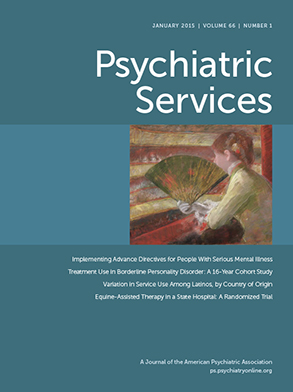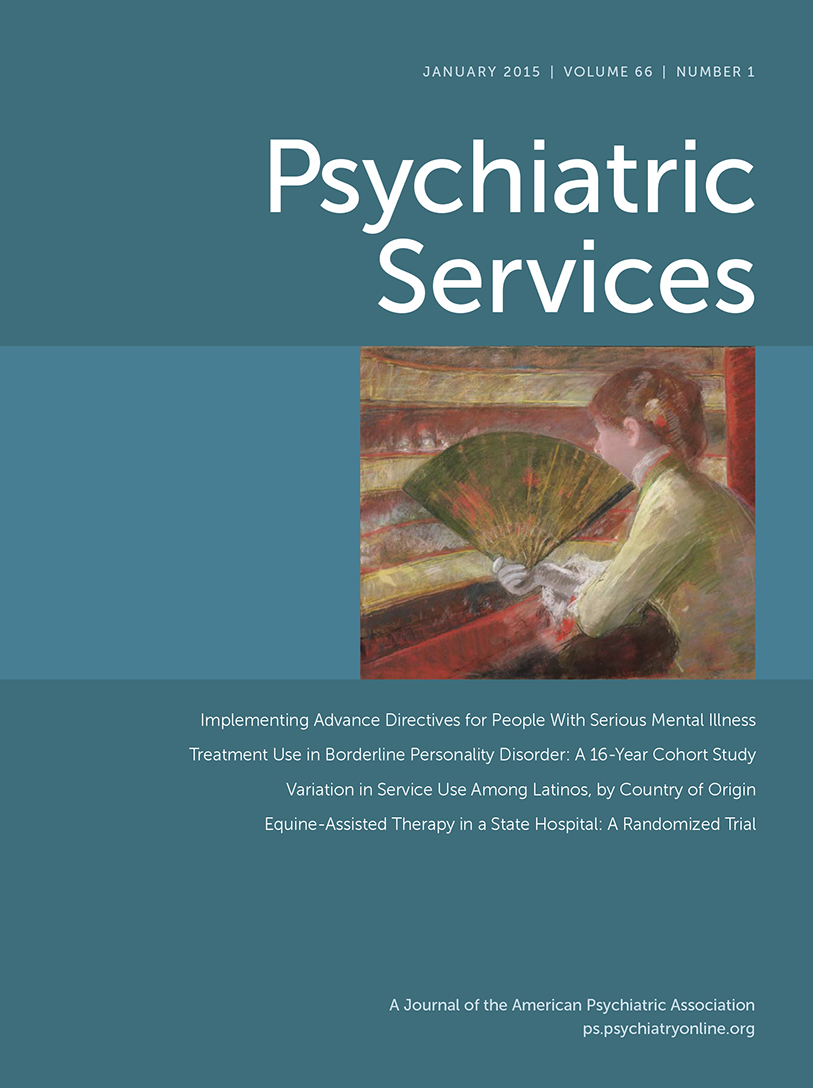Antipsychotic medication can improve symptoms for people with psychotic disorders, but this treatment does not consistently translate into improved psychosocial outcomes for people with early psychosis. In 2005, the Nova Scotia Early Psychosis Program held focus groups to ask patients what would help them recover. The patients said they wanted opportunities to do fun, recreational activities together and learn how to lead healthier lives.
To address the outcomes of the focus groups, the Nova Scotia Early Psychosis Program created a wellness program, a 12-week, group-based program to promote healthy lifestyles through experiential education. The twice-weekly program included four healthy eating sessions, 22 recreation sessions, four stress management sessions, and six group therapy sessions. The Healthy Eating sessions integrated nutritional information and menu planning on a budget with sampling new foods, preparing meals, and shopping at a grocery store. The recreation sessions included education about physical fitness and navigating community resources with activities aligned with youth culture, progressing from hospital based to community based. The stress management sessions combined discussion about the stress response with participation in stress reduction practices such as meditation and yoga. Group therapy incorporated aspects of cognitive-behavioral therapy, motivational interviewing (MI), and peer support.
A psychiatrist, a recreation therapist, and a peer motivator facilitated the program. The peer motivator was a recovered, young adult with psychosis who played a key role by representing participants’ perspective in the planning stages of the program, providing positive role modeling, and facilitating peer support. The facilitators were trained in MI, a conversation style that strengthens a person’s own motivation for change within a collaborative, accepting relationship.
The program was piloted in a study with three cohorts from 2006 to 2007. Thirteen of 25 participants completed the study (52%), with the majority of dropouts happening prior to the program start or right after the first session. Participants who completed the study had an average attendance rate of 83% and demonstrated improvements in leisure functioning. The leisure skills of community participation and integration improved from levels where they required assistance through verbal cueing to being functionally independent.
Exit interviews with participants revealed other benefits of the program. A majority (80%−90%) thought the program improved hope, self-confidence, and motivation—attitudes that are essential to the recovery process. Kevin reported, “I guess I had very little hope at one point and . . . just talking to the group and sharing ideas and sharing experiences, just kinda built some of that hope back up.” Chelsea explained, “It was really helpful just to get up and go and do these things. It made it seem much easier to do, like it was, ‘Oh, it’s not that hard, I can actually do this again.’ ” From 30% to 40% of the participants stated that the program facilitated healthy lifestyle changes; reduced self-stigma, with greater acceptance of their mental illness; and improved self-awareness.
Participants described program elements they valued and how these contributed to their gains. Most participants valued the relationships they had with each other and with the staff, engaging in program activities, the positive atmosphere (fun, relaxing, voluntary, and safe), and the structure provided by the program. Hopefulness was ascribed to having peer role models to identify with, having meaningful relationships with others in the program, and having fun again. Natasha explained, “It really helped to have someone who had already gone through [psychotic illness] to tell you that it’s going to be okay. . . [and] give you ideas or heads up on what’s good.” The growth in self-confidence was attributed to doing activities that developed participants’ sense of mastery. Increased motivation was credited to the voluntary nature of the program and to witnessing the accomplishments of peers.
Despite the perceived success of the program, resources needed to employ a permanent recreation therapist and provide transportation assistance (a factor in our high attendance rate) are barriers to incorporating the program into the regular services of our Early Psychosis Program. The participants reported that the program was too short, ending just as they had developed a sense of community with their peers and felt motivated to make lifestyle changes. Offering a less resource-dependent peer support group and lifestyle counseling with their primary clinicians postgroup may address this concern. The results of the pilot study of the wellness program suggest that recreation therapy, peer support, and training mental health professionals in motivational interviewing would be worthwhile interventions to augment mental health services for people with psychosis.

